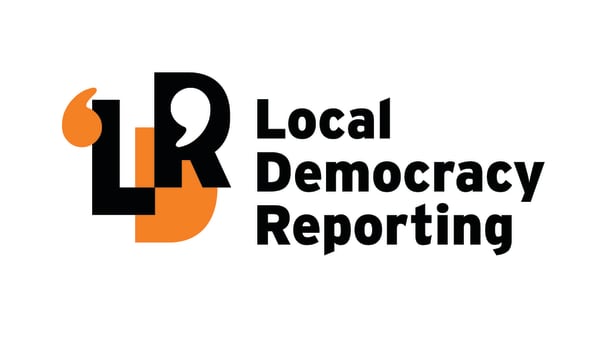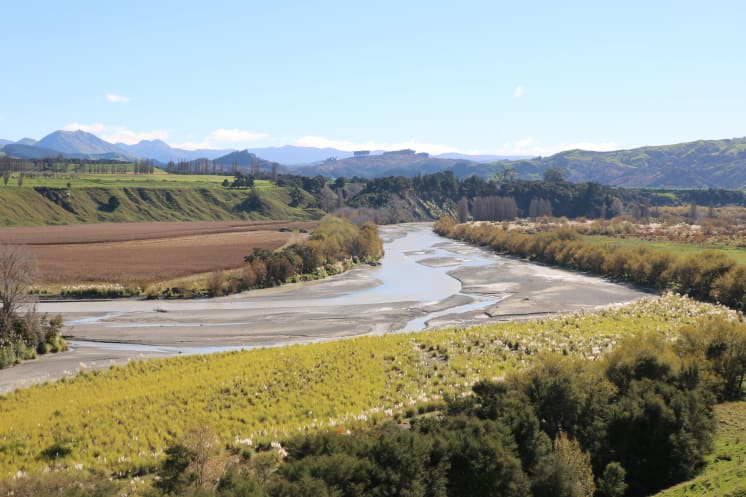Should Gisborne District Council wait for the national guidance on freshwater planning, or continue its mahi on Te Mana o Te Wai?

This question created a heated debate during a Tairāwhiti Resource Management Plan (TRMP) meeting this week.
Te Mana o Te Wai is a framework for councils to prioritise the health and wellbeing of water as a priority over social, economic and cultural wellbeing.
While most councillors saw the framework as important, some felt the council needed to wait for national direction before making decisions, and others saw it as business as usual (BAU).
Deputy Mayor Josh Wharehinga asked “why the heck” they were talking about seeing what central government was going to do.
“Aren’t we the region that always stands up for ourselves and provides our own direction?
“We’re Tairāwhiti ... we create our own rules for ourselves. Yes, underneath a national policy statement [but] we do need to fight to create room for us.
“Ta Mana o Te Wai is the fight to make room for us to do what we want to do in this region.”
Wharehinga said Tairāwhiti people elected councillors to make community and region-based decisions, “not to endorse what’s coming out of Wellington”.
Te Mana o Te Wai was introduced in the National Policy Statement for Fresh Water Planning (NPS-FM) 2014.
However, direction on the hierarchy of obligations and the six principles that defined the roles of tangata whenua and other New Zealanders were not introduced until the NPS-FM 2020.
All councils are required to develop new freshwater plans that give effect to the NPS-FM 2020.
But the Government has said it will be making changes and has given councils a new deadline of December 31, 2027 — a three-year extension.
District councillors Colin Alder, Larry Foster and Rob Telfer said they wanted to wait before making decisions.
“The reason they have given us this deadline is they intend to make changes. We have heard that loud and clear,” Alder said.
Telfer said: “Everyone wants this to happen, but we do want to get it right.”
Mayor Rehette Stoltz said she was confused by people who wanted to wait until 2027.
“That’s not how plans work. We don’t wait until 2027 and then whip something out of a hat. It is iterative work,” she said.
Chief executive Nedine Thatcher Swann said the Waipaoa Catchment Plan took seven years to become operative.
Councillor Rawinia Parata said iwi wanted Te Mana o Te Wai and not supporting it could have negative consequences on the united region the council was trying to build.
However, this was not the only reason to support it, she said.
“For a region that is facing climate change at an alarming rate ... it just makes sense. If the Government changes direction, we will pivot.”
TRMP independent commissioner Allan Mathewson said he had been in the game a long time.
“If we waited until every bit of legislation or national policy statement was in place and ready and not going to change before we did something, we would never do anything.
“In Tairāwhiti, the issues of water over-allocation are not going to go away. The importance of freshwater for people’s health and ecosystem health will not go away.”
He also recommended the council progress and pivot as it went along.
Managing Gisborne’s freshwater resources
The discussions took place as part of a review of the implementation of the Te Mana o Te Wai in the Waipaoa Catchment Plan.
Recommendations from the report, which can also be applied to the six other catchments under review in the region, included that the council improve resourcing hapū and iwi to build their capacity to meet their roles as kaitiaki, along with defining interpretations of the concept and clarifying iwi Māori groupings and use of consistent and culturally appropriate Māori kupu and concepts throughout the plan policy drafting.
The report also recommended upskilling the council and staff’s comprehension of Te Mana o Te Wai, so they could understand the cultural relevance for the region and develop a wider communication strategy for the community.
The review’s recommendations also gave effect to other council policies and frameworks such as Te Tiriti Compass, Tairāwhiti Piritahi and Tairāwhiti 2050, the report says.
Chief adviser of Māori partnerships Gene Takurua said only about 40% of the recommendations related specifically to Te Mana o Te Wai.
“The remainder are really what councils should be doing as part of their BAU anyway,” he said.
The council voted to further investigate the proposed recommendations and develop options for implementation, which the committee would review for approval in December.
Speaking with Local Democracy Reporting, Minister for Resource Management Act Reform Chris Bishop said the Government would introduce a package of regulatory reforms by the middle of next year, including reviewing and replacing the national policy statement for freshwater management 2020 ... “enabling vegetable growing and on-farm water storage to support economic and environmental goals”.
“This will create a more balanced approach for all water users.”
Bishop said the new deadline meant councils did not need to incur unnecessary costs to the existing NPS-FM 2020.











3 comments
Three councillors, Bob Telfer, Larry Foster and Colin Alder, spoke in opposition and sensibly urged a pause till national policy on the subject due in 2027 be released, to save ratepayers from any unnecessary cost of change.
I urge everyone to watch the relevant section on this council session, Tairāwhiti Resource Management Plan,
from 1hr 20 min to 1 hr 45 min:
https://www.youtube.com/watch?v=QnCRC_8BSbA
Mayor and Cr Josh Wharehinga and Cr Rawinia Parata spoke in favour.
Throughout this council session, there were two consultants present who often asked questions and even offered their opinions and recommendations. These consultants, which I presume are a gift from the previous government after the land use inquiry, are not our elected councillors. I am not sure if ratepayers pay for their services or central Govt does and I am not sure if their services are meaningful to our district.
I have no problem if they give their opinions and recommendations to GDC staff, but influencing a council session and at times over-riding our elected councillors, I believe, is a subversion of our democracy.
Another unsavoury behaviour, which is not the first time I have noticed in the council’s chambers, is when Cr Wharehinga went on a rant admonishing 3 councillors who expressed a different view to his.
Josh needs to be reminded, those councillors are elected by those who voted them in and have every right to express their honest opinion on any plan, without being lectured by him. Respect for them, means respect for their constituents.
In the end, Councillor Alder was the only one who voted against the motion.
PS. I have already written to GDC, about the need to turn up the volume on the council sessions, so we can hear it properly - and probably a reminder to everyone, esp. council staff, to speak loud and clear, rather than in muffled tones. I think mayor Stoltz sets a good example in this regard. Introducing everyone present and their function will also be useful.
JOIN THE CONVERSATION
Read and post comments with a
Newsroom Pro subscription.
Subscribe now to start a free
28-day trial.